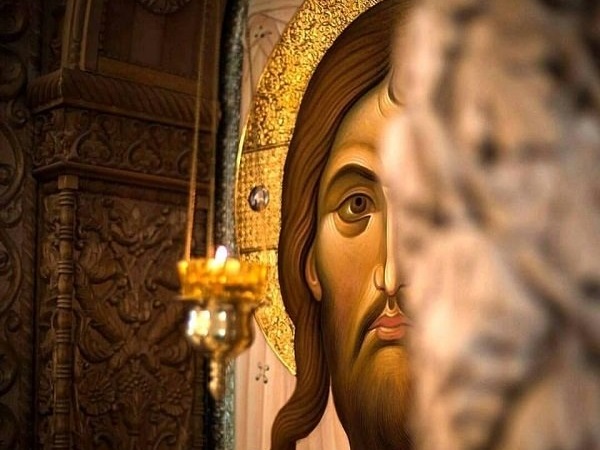The Expectation of the Second Coming isn’t about Fairy-Tales
8 April 2020The way the Church lives is in the end times. From the moment Christ ascended into heaven, the Church has never ceased to await His return to the world. The eschatological expectation manifests itself to the faithful in different ways in different eras. On the Sunday of Meat-Fare, this was the opening sentence of the two-page sheet The Voice of the Lord, which is published by Apostoliki Diakonia [Apostolic Service] of the Church of Greece and distributed to those who want it at the time of the Holy Liturgy, on a Sunday.
So that Sunday I went to church because, apart from anything else, I’d hear about the Second Coming. A difficult subject, for theologians and everyone. The editor of The Voice of the Lord conceded this when, a little later, he noted that theological discourse regarding the last times and what happens before and during the Second Coming is neither easy nor without danger.
From that Sunday, at Saint Eleftherios’ in Gyzi [a neighborhood of Athens] I retain what encouragement I heard in yet another inspiring sermon by Father Varnavas. His point was that what is said about the Second Coming in the Gospel isn’t merely a made-up tale.

Let’s begin, however, from the Gospel reading for that Sunday and restrict ourselves to that, since the Gospel includes all we need to know. So, in Matthew, we read (25, 31-46) about the Last Judgment: ‘When the Son of Man comes in his glory, and all the angels with him, he will sit on his glorious throne. All the nations will be gathered before him…’. We might perhaps include here the kontakio for that Sunday: ‘When you come to earth in glory, God, all creation will tremble. A river of fire will bring people before the judgment seat. The books will be opened and all that is secret will be made known’. To put it another way: terror, fire and all our dirty linen out in the open.
I confess that I’m wary about engaging with these matters, because I’m not a theologian. I’m a bit of a poet, but as Saint Porfyrios says, we all have to poets to some extent if we want to become good Christians. So, for some time I’ve been of the opinion that the things described in the Old and New Testaments actually happened, but in such a simple, humble and seemly manner that only the Holy Spirit could put it into words. Even what is going to happen, that is the future judgment, will occur exactly as we read it. In the naked, abstractive and allegorical manner of the divinely-inspired texts, the which are still connected to their everyday reality and their literal meaning. Any interpretation or translation that these sacred texts demand of us is given to us through His love.
Therefore, to come to our own apocalyptic days, if a virus, a tiny microbe, is able to concentrate all the nations on the planet, for the very first time in history, at precisely the same moment in time, sitting in front of a screen, terrified at the horrific messages they’re all receiving and watching the same shocking images, why does it sound like a fairy-tale or an unfounded expectation that at some stage, all over the world, we’ll all see our merciful God, Christ, appearing precisely as is described in the Gospels? All the nations gathered together, everything revealed, one group separated from the other, and the ultimate abolition of death. Why is this a fairy-tale or a scenario for the pious when we see precisely the same thing happening today?
If you read history in the light of God’s love for us, His supreme creation, it may not show privileges or accolades, but it does reveal, comfort and soothe.






